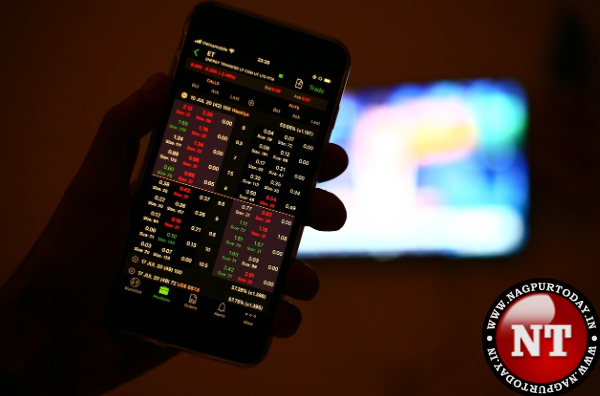The foreign exchange (forex) market is the largest and most liquid financial market in the world. Given its vast size and the fact that it operates 24 hours a day, the forex market has attracted traders from all corners of the globe.
Yet, despite its decentralized nature, forex trading isn’t a free-for-all. Instead, it’s subject to regulatory oversight in various jurisdictions to protect market participants and maintain financial system stability. In this article, we’ll guide you through the legislation surrounding forex trading in major markets. Then, you can read our comparison of forex brokers and choose one that is perfect for you.
 United States
United States
In the U.S., forex brokers are primarily regulated by two main bodies: the Commodity Futures Trading Commission (CFTC) and the National Futures Association (NFA). The CFTC is an independent agency that oversees the commodity futures and options markets, while the NFA is a self-regulatory organization for the U.S. derivatives industry.
Forex brokers in the U.S. are required to maintain a minimum net capital of $20 million, ensuring that they have a buffer in case of unforeseen losses. Additionally, the Dodd-Frank Wall Street Reform and Consumer Protection Act introduced several other changes to forex trading rules, such as:
- Limiting leverage for retail forex customers to 50:1 on major currency pairs and 20:1 for other pairs;
- Requiring that all forex brokers be registered and meet strict financial standards;
- Imposing stringent record-keeping and reporting requirements.
European Union
In the European Union, the regulatory framework for forex trading was primarily under the Markets in Financial Instruments Directive (MiFID) until 2018. Post that, the MiFID II came into effect, which expanded the scope of the original directive and introduced stricter rules.
The European Securities and Markets Authority (ESMA) plays a pivotal role in setting the regulatory standards. Key changes under MiFID II include:
- A restriction on leverage for retail traders. This varies from as low as 2:1 for cryptocurrencies to up to 30:1 for major currency pairs;
- A mandate for negative balance protection, ensuring retail traders cannot lose more money than they have deposited;
- A standardized risk warning, including the percentage of losses on CFDs (Contracts for Difference).
Australia
Forex brokers operating in Australia are regulated by the Australian Securities and Investments Commission (ASIC). Known for its rigorous regulatory environment, ASIC mandates that:
- Brokers segregate client funds from their operational funds, ensuring safety for traders;
- A minimum net capital requirement be maintained to ensure broker solvency;
- Brokers adhere to fair trading practices, avoiding misleading promotions and conflicts of interest.
Recently, there have been discussions about ASIC introducing leverage restrictions, similar to those in the U.S. and EU, but as of now, Australia remains one of the few major jurisdictions without such limits.
 Japan
Japan
Japan is one of the largest forex trading markets, and its regulatory body, the Financial Services Agency (FSA), has taken steps to ensure a stable trading environment. The regulations in Japan are unique in several ways:
- Leverage is capped at 25:1 for major currency pairs, which is significantly lower than most other major jurisdictions;
- Forex brokers are required to obtain a license from the FSA and join a self-regulatory body;
- The FSA frequently audits and monitors brokers to ensure compliance with rules and to protect the integrity of the market.
United Kingdom
Post-Brexit, the UK’s regulatory environment has seen changes. While previously under the umbrella of MiFID II and ESMA, forex regulations are now overseen by the UK’s Financial Conduct Authority (FCA) independently. The FCA regulations are akin to ESMA’s, with:
- Leverage restrictions of up to 30:1 for major currency pairs for retail traders;
- Mandatory negative balance protection;
- A focus on transparency and fair trading practices to protect consumers.
South Africa
The Financial Sector Conduct Authority (FSCA) regulates the non-banking financial services industry in South Africa, including forex trading. While the forex market is growing in South Africa, the FSCA ensures that traders’ rights are safeguarded.
The main points of the South African regulatory framework are as follows:
- Forex brokers must be licensed as Financial Services Providers (FSP);
- Regular reporting is required to maintain transparency and to monitor brokers’ financial health;
- There are guidelines on marketing and promotions to ensure consumers are not misled;
- Client funds protection is a priority, with mandates on segregating trader funds.
Final Words
While the forex market’s landscape is ever-evolving, regulatory bodies worldwide strive to adapt and ensure a safe trading environment for all participants. Traders are encouraged to stay informed, choose their brokers wisely, and be aware of the regulatory environment in their respective jurisdictions. Through combined efforts, both traders and regulators can contribute to a more transparent, fair, and stable forex market.



 United States
United States
 Japan
Japan











